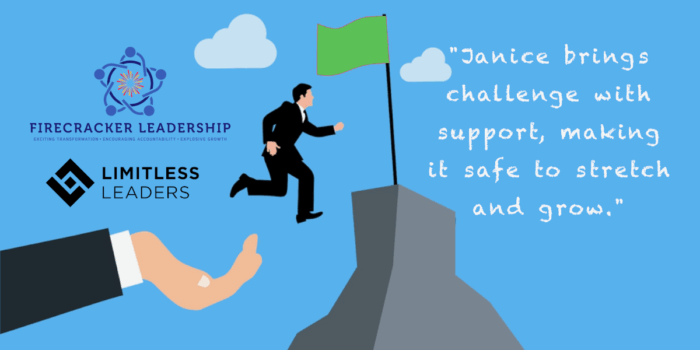What workout did you do this morning?
If you’re constantly seeking a competitive advantage — if you’re constantly striving to learn more, make better decisions, and improve your problem-solving skills (in other words, if you’re an entrepreneur) — exercise shouldn’t be considered a luxury. Or an afterthought.
Exercise can play a major role in your success and overall happiness.
Here’s one example. Studies conducted by the Military Health System shows that chronic stress can cause leaders to become uncertain and unmotivated, and to focus on themselves rather than on their teams. On the flip side, a study published in Brain Plasticity found that aerobic exercise has a “profound ability to lower anxiety levels,” both in the moment and for hours later.
According to the researchers, exercise not only reduces anxiety, but also helps you stay calmer when you’re confronted with a difficult situation.
In short, exercise can help you be a better leader.
But that’s just one way exercise can be your competitive advantage.
Exercise Improves Overall Cognitive Functioning
Physical activity dilates your blood vessels and increases the flow of blood and oxygen to your brain.
In itself, that’s a good thing, but research published in Journal of Comparative Physiology shows that increased blood flow also improves brain plasticity and enhances the functional aspects of parts of the brain involved in cognition.
As the researchers write, “More active or higher fit individuals are capable of allocating greater attentional resources toward the environment and are able to process information more quickly.”
Greater attention, faster processing. Not a bad start.
Exercise Builds a Bigger, Stronger Brain
Your brain is a tissue, and like any other tissue, age causes its performance to decline. As we hit our late 20s, the hippocampus — the portion of our brains devoted to learning and memory — starts shrinking by about 1 percent per year.
As your hippocampus shrinks, you naturally lose some of your ability to process and retain information.
But it doesn’t have to shrink. Exercise — just as it does for skeletal muscles — can slow or even reverse the physical decay of your brain. Contrary to conventional wisdom, new brain cells can be created. Research published in the Proceedings of the National Academy of Science shows exercise can increase the size of your hippocampus, even in your 60s and 70s, mitigating the impact of age-related memory loss. (The process is called hippocampal neurogenesis.)
Plus, your brain and your muscles constantly talk to each other by sending electrochemical signals back and forth. When your muscles contract, chemicals get released into your bloodstream. When those chemicals get to your brain, they help trigger the formation of new neurons, boost synaptic plasticity (in simple terms, improve how well neurons communicate with each other), and therefore improve memory and cognition.
Stronger muscles, stronger brain.
Exercise Increases Attention and Concentration
Even if you only exercise for two minutes.
According to research published in Transitional Sports Medicine, “aerobic exercise for two minutes to one hour at moderate-to-high intensity improved attention, concentration, and learning and memory functions for up to two hours.”
After reviewing 13 different studies, the researchers concluded that exercising, followed by a brief recovery period, can improve your attention, concentration, working memory, short-term memory, long-term memory, verbal fluency, your ability to plan, and your ability solve problems.
Anything on the list that doesn’t sound good to you?
Exercise Improves Your Mood
Researchers at the University of Vermont found that aerobic training of “moderate intensity,” with an average heart rate of around 112 beats per minute, improved participants’ mood for up to 12 hours after exercise. (For the average person, that means still being able to carry on a conversation, albeit with a gasp or two between sentences.)
Do that first thing in the morning, and your mood should be boosted throughout the day.
“Moderate intensity aerobic exercise improves mood immediately and those improvements can last up to 12 hours,” the researchers write. “This goes a long way to show that even moderate aerobic exercise has the potential to mitigate the daily stress that results in your mood being disturbed.”
Keep in mind your workout doesn’t have to be draining or exhausting. You don’t have to wear yourself out to get a day-long mood and brainpower boost. All you have to do is get up, get moving, and see your quick morning workout not as a chore but as a way to kick-start your day.
Think of it as coffee, just a lot healthier
Exercise Can Make You Happier
According to a study published in the International Journal of Environmental Research and Public Health (there’s a title in desperate need of an acronym):
Participants with high and moderate activity levels had significantly higher life satisfaction and happiness. … Physical activity was significantly related to life satisfaction and happiness in young, middle-aged, and older adults.
In addition, life satisfaction and happiness increased with increasing age.
(I included the last sentence because, well, I’m old.)
How? In neuroscientific terms, exercise increases the production of endorphins, what the Mayo Clinic calls your brain’s feel-good neurotransmitters.
But there’s also the impact of how exercise makes you feel about yourself. Aside from feeling good about trying to be healthier (a great outcome in itself), doing hard things provides a sense of fulfillment.
Exercise — as with just about effort that is worthwhile — may not feel good to do, but it feels good to have done.
And provides a sense of confidence that comes from knowing you accomplish more than you might have imagined, even if — especially if — you didn’t really want to.
BY JEFF HADEN, CONTRIBUTING EDITOR, INC.



